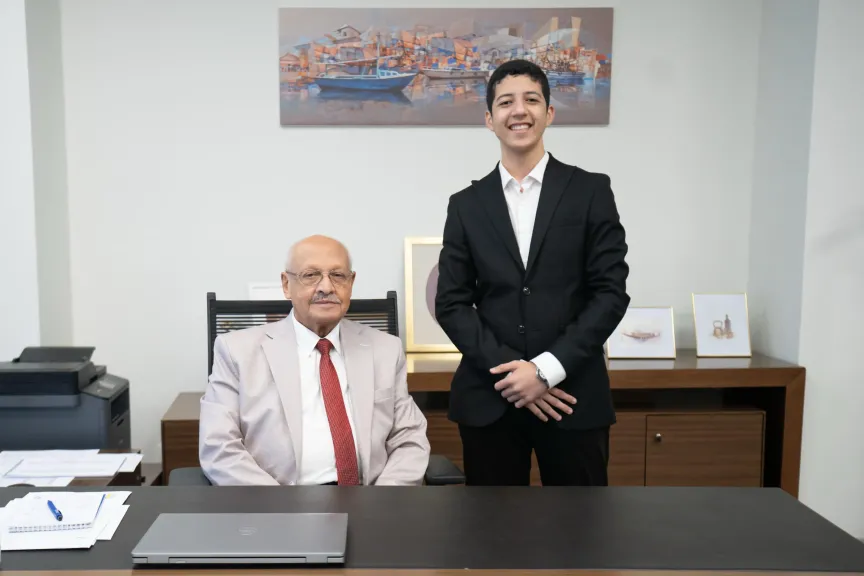Egypt University for Informatics Board Approves Scholarship Winner for Dr. Reem Bahgat Grant: Student’s AI Project Aims to Support People with Disabilities

Professor Ahmed Hamad, Acting President of Egypt University for Informatics (EUI), announced that the University’s Board of Trustees has approved the selection of Mohamed Ahmed Rabie, a high-achieving student from the Mathematics division (Scientific Stream) with a score of 95.7%, as the winner of the Dr. Reem Bahgat Scholarship for the academic year 2025/2026. The prestigious grant, named after the university’s founding president, offers full tuition coverage for studies at the Faculty of Computer and Information Sciences.
The scholarship, which closed for applications on August 14, 2025, is awarded to Egyptian students who meet specific criteria, including achieving a minimum score of 90% in the General Secondary Certificate (Thanaweya Amma), demonstrating proficiency in English, and submitting an innovative proposal in the field of computer and information sciences.
AI-Powered Accessibility: The Winning Project “SenseAI”
Professor Hamad noted that the winning proposal—titled SenseAI—introduces a comprehensive AI-powered application designed to assist people with multiple disabilities through a single, user-friendly digital platform.
The project combines three core capabilities:
1. Enhanced hearing support, integrating AI with hearing aids and mobile devices to improve speech clarity in noisy environments.
2. Image recognition for the visually impaired, enabling real-time identification of objects, scenes, and text through auditory feedback.
3. Natural Language Processing (NLP) tools to perform context-aware tasks and facilitate intelligent voice-based interactions.
Addressing Global Accessibility Challenges
Professor Hamad emphasized the project’s significant potential impact, citing global statistics indicating that over 1.5 billion people experience some degree of hearing loss, while more than 2.2 billion individuals live with visual impairments.
“Although assistive technologies exist, they are often fragmented, requiring separate devices or applications for different functions,” he said. “They also lack seamless interoperability, creating barriers for users with multiple disabilities—and many of these technologies are prohibitively expensive, with advanced hearing aids or specialized smart glasses costing thousands of dollars.”
Social and Economic Impact
He added that the proposed SenseAI platform could have profound social and economic benefits. Socially, it would enhance the independence and communication of persons with disabilities, promoting greater inclusion in workplaces, educational settings, and everyday life. Economically, it could reduce the cost burden associated with purchasing multiple specialized devices and open pathways for collaboration with NGOs, healthcare providers, and government programs to scale adoption.
> “Mohamed’s innovative vision embodies the mission of Misr University for Informatics — empowering young Egyptian talent to harness technology for social good,” Professor Hamad concluded.


